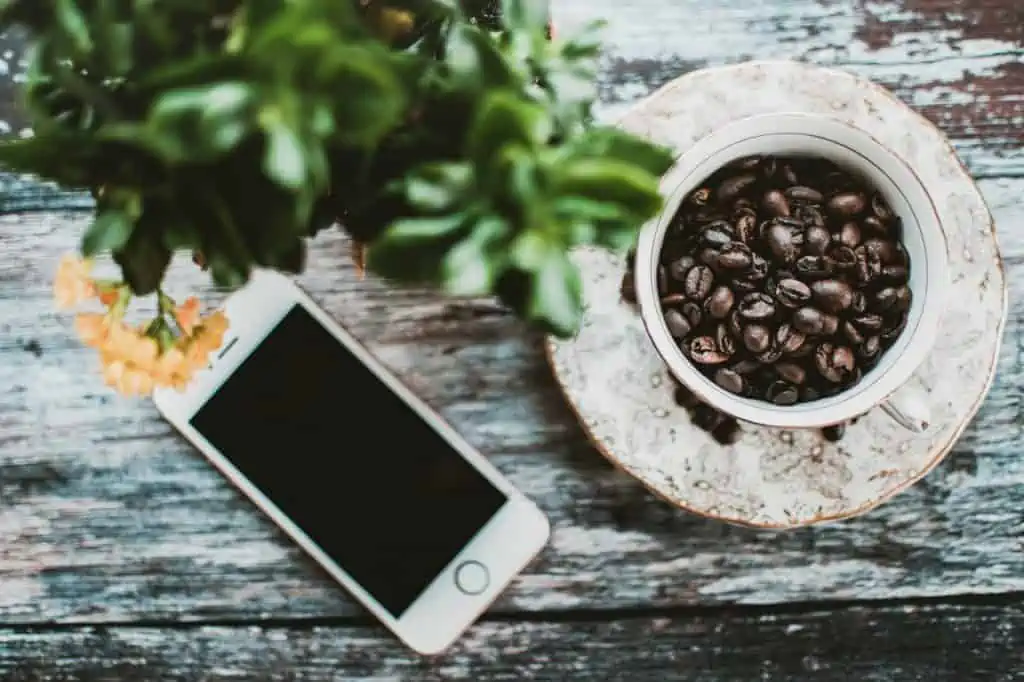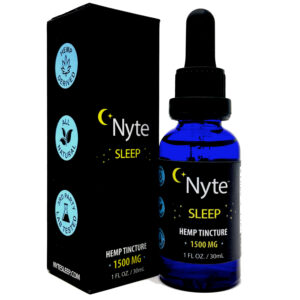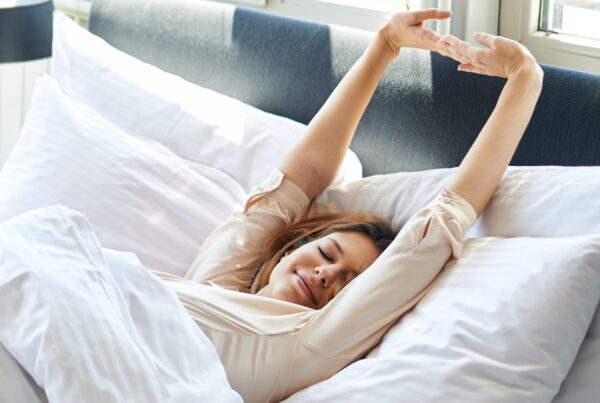The Best Morning Routine for Your Chronotype
Now that you know what your chronotype is thanks to our handy quiz, you can look up your personalized morning routine according to what will best suit your chronotype, and help you take control of your circadian rhythm. But, besides that, there are some general ways in which subtle changes to your morning routine can make a massive difference in how you feel during the day, and ultimately, how you sleep each night.
What You Do During the Day Influences Your Sleep at Night
Most of us dramatically underestimate how much our daytime habits affect how and when we sleep at night. We’ve already touched upon the influences of both caffeine and alcohol, but those are just two of the big factors that directly affect our unique circadian rhythm, regardless of personal chronotype. For example, our exposure to sunlight can have a massive impact on our daytime performance, our energy levels and when we fall asleep, because sun exposure introduces vitamin D into the body, which resets our circadian rhythm. And, when we should ideally get that sunlight during the day is largely dependent on our chronotype, which you can learn more about in our personalized chronotype morning routine section.
Your Morning Routine
Like we said, each chronotype has the ideal morning routine, as you’ll find out. But, what they all share in common with one another is the basic morning requirements. These are the things that are the most important to our circadian rhythm in the morning, and we’ve listed them in the general order of importance.
#1: Hydration
You may not know this, but you lose about one whole liter of water each night thanks to the humidity of our own breath. This is why drinking water first thing in the morning is absolutely critical. Not only does it restore our hydration levels, but gives us energy and jumpstarts our metabolism.
#2: Sunlight
Sun exposure, like we said, resets our circadian rhythm and keeps us regular, while telling the brain to stop producing melatonin. It’s ideal to get some sun exposure within 15-20 minutes of waking, even if that means standing for a few moments in front of a sunny window.
#3: Cool Showers
We know, we know. The last thing that sounds appealing to us in the morning is a cool or cold shower. But, exposure to cold water actually increases blood flow in the trunk of the body, which makes us more alert, focused, present in the moment and action-oriented.
Take a shower like you normally would in the morning, and when you’re done washing, turn the faucet to make the water slightly cooler. Turn it again after 20 seconds to bring the temperature down even more. Keep doing this in 20 second increments until the water becomes cold.
#4: Caffeine
We talked about caffeine earlier, but we want to reiterate some crucial points. When you first wake up, your body is releasing so much adrenaline and cortisol that caffeine, believe it or not, won’t actually have all that much of an effect. Basically, your body already knows how to wake itself up and energize itself just fine. After about 90 minutes, those neurochemicals start to dip, so that’s actually when caffeine will be the most beneficial.
#5: Breakfast
We all know the importance of a healthy and nutritious breakfast. If you want your morning to be full of energy and productivity, opt for a high-protein, low-carb breakfast that give you the fuel that you need to start your day off right.
#3: Morning Stretching
Stretching in the morning, even for 5-10 minutes, is incredibly beneficial. It get your muscles nice and lumber so that you can move more easily throughout the day, and minimizes pain and risk of injury. This morning stretching period can also be an opportunity to get into a more meditative headspace to emerge more clear-minded and destressed.
Fighting Daytime Sleepiness
Many of us are all too familiar with that mid-afternoon slump, but few know that there are some pretty simple ways to fight it off. Here are the best tips for staying alert and awake for the duration of the daytime.
#1: Don’t Depend on Sugar and Caffeine
Sugar and caffeine can feel like they’re energizing you, but they’re quick fixes that come with a big crash. At lunchtime, stick to a low-carb meal, like a veggie-rich salad with some protein on top, like chicken or a boiled egg. And for midday snacks, stick to nutrient-dense foods like cashews, and berries, which can replenish your energy levels.
#2: Nap the Right Way
A power nap can be effective and beneficial, but only if it’s done right. A daytime nap should exceed no more than 25 minutes, because going beyond that time can actually make you feel groggy, and less refreshed than you did before.
#3: Get Some Sun
We talked about the importance of morning sun exposure, since it stops melatonin production and resets your circadian rhythm. Well, as it turns out, between the hours of 1-3pm, our core body temperature rises, and this tells the body to produce melatonin. This is a big part of why we feel sleepy around these hours of the afternoon. What’s the best way to shut that melatonin off then? Go outside and get some sunlight, which will once again have the effect of ceasing melatonin production. Some afternoon sun exposure can give you a natural energy boost.
#4: Stop Your Coffee Intake
After 2pm, it’s time to stop consuming coffee. We mentioned before that caffeine has a half-life of 6-8 hours, so if you drink a cup at 4pm, then you could very well still be affected by it at midnight. If you must have some midday caffeine, stick to something milder like black or green tea, which should be diluted. This will still give you some caffeine, but it’s far less potent. Or, better yet, try some sparkling water, which can actually have an invigorating effect.
Find Your Personal Chronotype Morning Routine
Now that you know the basics of a healthy morning routine, find your personal chronotype routine and adjust as necessary, applying the rules above. And, don’t forget to stay on top of your sleep tracker, to see how these simple changes can benefit your sleep.







